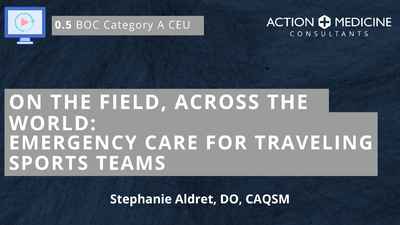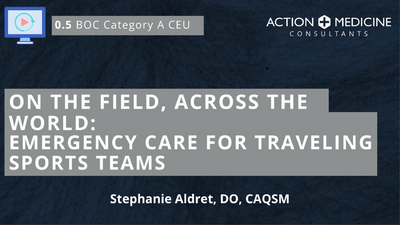General Course Information
Learning Material
27:05
AI Chat Bot
The chat bot may hallucinate. Please double check results.
On the Field, Across the World: Emergency Care for Traveling Sports Teams › Learning Material
Presentation (Video)
Updated May 30, 2024
Copyright © 2025 Action Medicine Consultants, LLC
___MESSAGE___
___MESSAGE___


